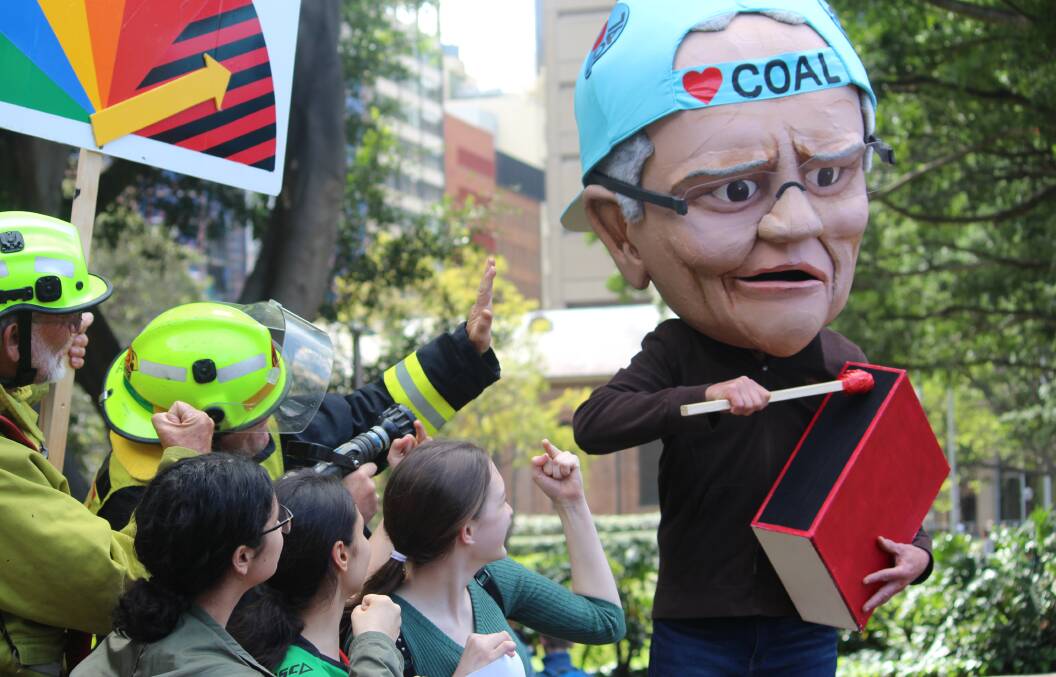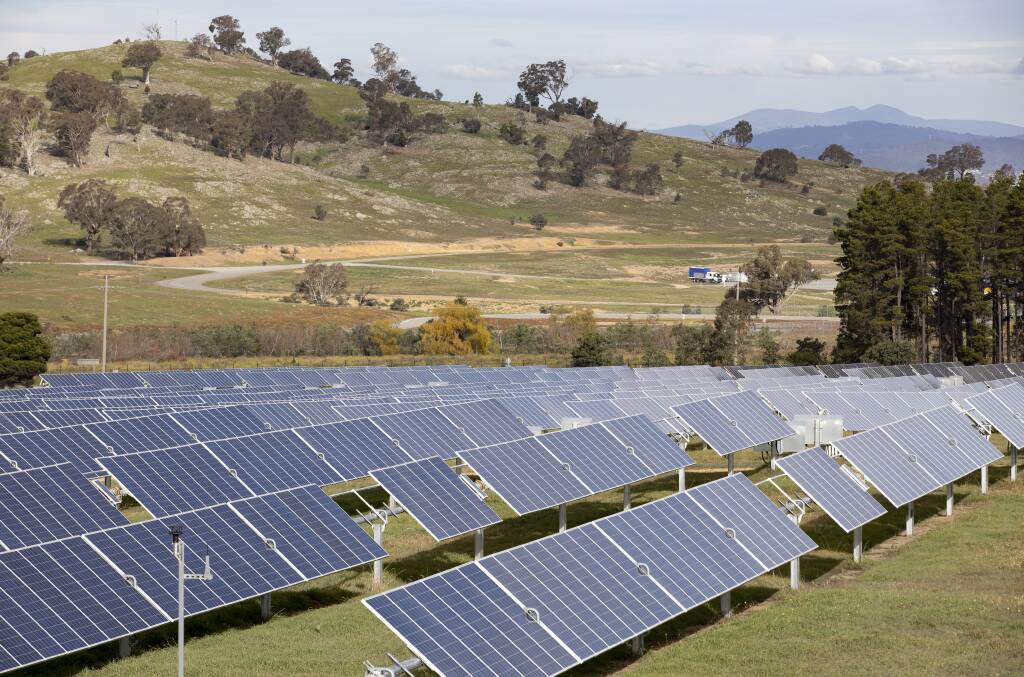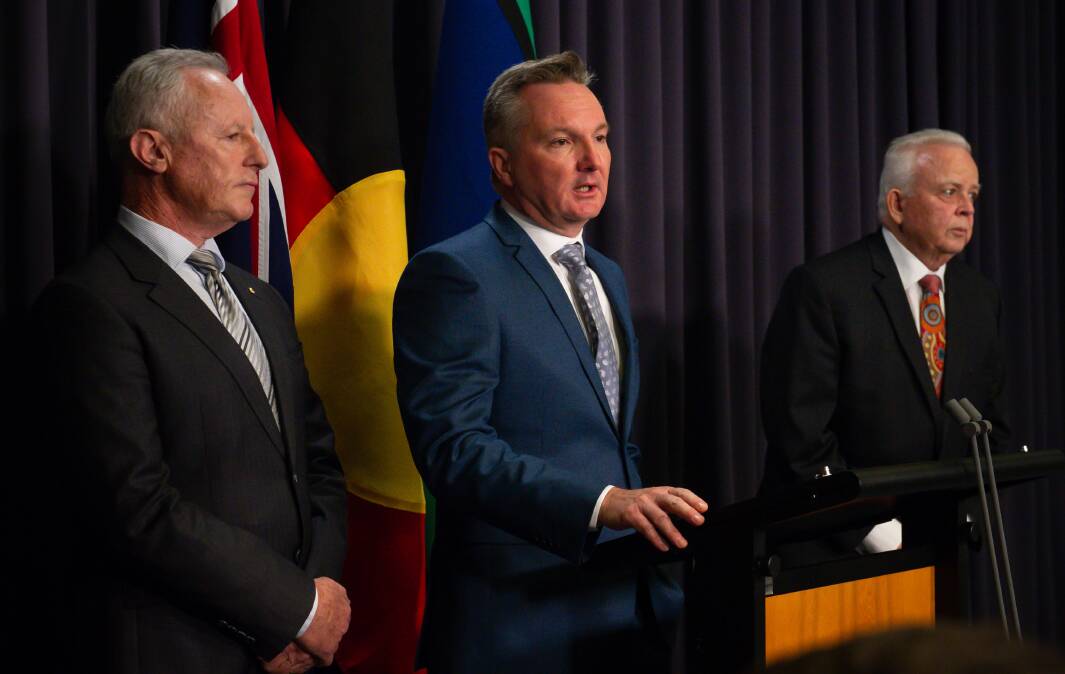
As he stood before his cabinet for the first time earlier this month, newly elected Labor leader Anthony Albanese made a bold promise: Labor would end the climate wars.
After more than a decade of fighting over coal, renewables, failed emissions-trading schemes and seemingly endless false starts, this week's meeting of energy ministers achieved a rare first - a commitment to a national transition plan from federal, state and territory ministers across the political spectrum.
Sparked by an energy crisis threatening to send household power bills through the roof, the government has handed energy regulators new powers to increase transparency, particularly in regards to the gas market, and put consumers ahead of profit.
The Labor, Liberal and Greens ministers agreed energy operators being paid to operate on demand, rather than for what they produce, while limiting exports and storing energy could prevent future shortages.
For the first time in decades, business leaders, environmentalists and energy experts calling for certainty are expressing hope that a clear path forward is emerging.
Energy Minister Chris Bowen wants a "supercharged" version of Australia's electricity market plan which considers all energy sources, including renewables. State and territory ministers have unanimously agreed.
Mr Bowen, who didn't rule out coal forming part of that plan, may have the Greens holding the balance of power in the Senate, keeping federal Labor accountable to its climate commitments.
Labor went to the election with a 43 per cent emissions reduction target by 2030, which for many proponents of progressive climate action didn't go far enough.

Tim Buckley, director of Climate Energy Finance, said the more ambitious target - and perhaps more important in this context - was Labor's push to achieve 82 per cent renewable energy by 2030.
While not discussed this week, Mr Buckley said the new Energy Minister had also made it very clear Australia's largest emitters will soon see a reduction in accepted emissions, through the stepping up of the safeguard mechanism.
He said industry, including the country's biggest climate laggards, had mostly prepared for that by committing to net zero by 2050.
"Even before the election, the CEO of Woodside made what I found to be a staggering comment," Mr Buckley said.
The CEO said if the safeguard mechanism was installed at 3.5 per cent per annum it would be consistent with their plan, he said.
"If you start with a massive decarbonisation of the electricity sector, with grid transmission upgrades and modernisations - plus you have the safeguard mechanism impacting the top 215 or 240 companies across Australia - you can actually dramatically exceed the 43 per cent target using electrification of everything," Mr Buckley said.

The Business Council of Australia supports a "carefully managed" energy transition and an acceptance of the government's approach to emissions reduction.
Chief executive officer Jennifer Westacott said while many of the causes of the gas crisis are beyond the council's control, "a lack of coordination and failure to make key decisions over the past 15 years has made them worse".
The oil and gas lobby, too, has recognised the issues confronting the east coast's electricity market, and agreed to work with government to ease the pressure.
A spokesman for the lobby said the crisis was caused by coal-powered generation outages and the inability of renewables to input power as required, not the fact that gas is exported at large quantities overseas.
Simon Corbell, the former ACT climate minister who now heads up the Clean Energy Investor Group, said whether the relationship which fractured under Angus Taylor's leadership can be repaired remains to be seen.
"We have allowed a very large gas export market to be developed, with insufficient attention to the implications of that on domestic supply, and we're now paying the price for that," Mr Corbell said.
"The government needs to continue to put pressure on the gas companies to improve supply and help bring down the price in the domestic market."
Mr Corbell said the key issue for industry was certainty regarding grid stability and a clear understanding that there was a collective target across jurisdictions.
He said a transition plan was not a hard sell for state and territory ministers headed home this week who'd already been driving renewable development.
Even the states which traditionally relied on resource extraction to fuel their economies have long seen the writing on the wall when it comes to energy production, he said.
"The NSW roadmap, led by minister [Matt] Kean, has fundamentally reshaped that state's focus on energy," he said.
"The efforts of the NSW government are going to be central to creating new opportunities for clean energy investment, particularly over the next couple of years."
Mr Corbell said Queensland's 50 per cent renewable energy target for the next decade, focus on renewable energy for domestic supply and export of fuels like green hydrogen signalled that it too had aligned with federal goals.
Decarbonisation was inevitable, he said.
Mr Corbell said the fact ministers signalled they were focused on the market reforms needed to deliver improved investor confidence showed minsters were on the same page very shortly after a change of government.
"What will be needed now is the detailed implementation plans and policies to drive that, and for ministers to maintain this high level of consensus," he said.
"We've got to catch up from a period of 10 years of ambiguity at best from the previous federal government when it came to their commitment to the clean energy transition."
We've made it a whole lot easier for you to have your say. Our new comment platform requires only one log-in to access articles and to join the discussion on The Canberra Times' website. Find out how to register so you can enjoy civil, friendly and engaging discussions. See our moderation policy here.







